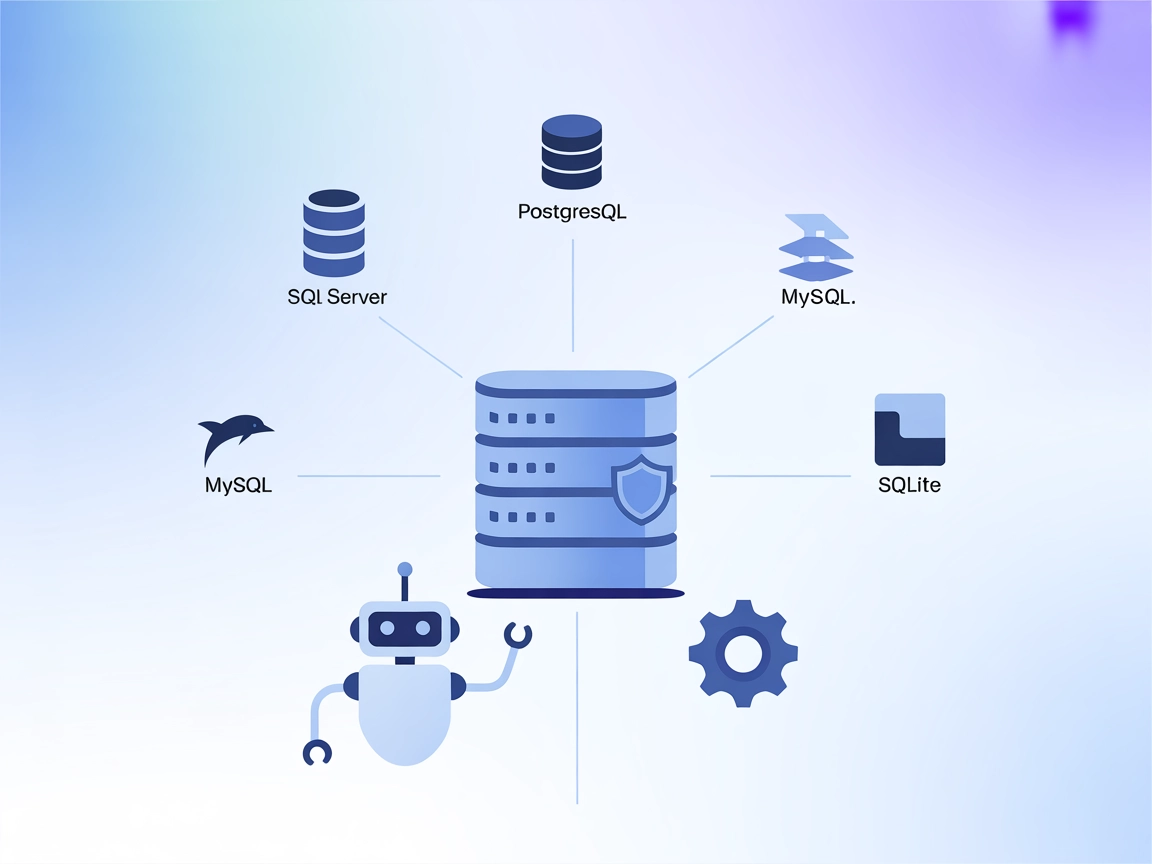
Spotify MCP Server
The Spotify MCP Server bridges FlowHunt AI assistants with Spotify’s API, enabling automated playback control, music search, playlist management, metadata retri...

Connect AI agents and apps to the Discogs music database for instant access to music metadata, artist, release, and label information via easy-to-use MCP tools.
FlowHunt provides an additional security layer between your internal systems and AI tools, giving you granular control over which tools are accessible from your MCP servers. MCP servers hosted in our infrastructure can be seamlessly integrated with FlowHunt's chatbot as well as popular AI platforms like ChatGPT, Claude, and various AI editors.
The Discogs MCP Server is a Model Context Protocol (MCP) server designed to connect AI assistants and development tools with the Discogs music database. By serving as an intermediary, it enables AI clients to access, search, and interact with Discogs’ vast catalog of music releases, artists, and labels. This integration enhances development workflows by allowing automated queries, metadata retrieval, and content enrichment from external music data sources. Developers can leverage the Discogs MCP Server for tasks such as searching for music information, cataloging collections, or integrating Discogs data into apps and workflows, streamlining the process of working with music-related data and APIs.
No prompt templates were found in the provided repository files.
No explicit MCP resources were documented in the repository files.
The following tools are provided by the Discogs MCP Server as described in TOOLS.md :
{
"mcpServers": {
"discogs-mcp": {
"command": "npx",
"args": ["@cswkim/discogs-mcp-server@latest"]
}
}
}
{
"mcpServers": {
"discogs-mcp": {
"command": "npx",
"args": ["@cswkim/discogs-mcp-server@latest"]
}
}
}
{
"mcpServers": {
"discogs-mcp": {
"command": "npx",
"args": ["@cswkim/discogs-mcp-server@latest"]
}
}
}
{
"mcpServers": {
"discogs-mcp": {
"command": "npx",
"args": ["@cswkim/discogs-mcp-server@latest"]
}
}
}
Securing API Keys:
Store sensitive data like API keys in environment variables. Example:
{
"mcpServers": {
"discogs-mcp": {
"env": {
"DISCOGS_API_KEY": "your-api-key"
},
"inputs": {
"apiKey": "${DISCOGS_API_KEY}"
}
}
}
}
Using MCP in FlowHunt
To integrate MCP servers into your FlowHunt workflow, start by adding the MCP component to your flow and connecting it to your AI agent:

Click on the MCP component to open the configuration panel. In the system MCP configuration section, insert your MCP server details using this JSON format:
{
"discogs-mcp": {
"transport": "streamable_http",
"url": "https://yourmcpserver.example/pathtothemcp/url"
}
}
Once configured, the AI agent is now able to use this MCP as a tool with access to all its functions and capabilities. Remember to change “discogs-mcp” to whatever the actual name of your MCP server is and replace the URL with your own MCP server URL.
| Section | Availability | Details/Notes |
|---|---|---|
| Overview | ✅ | |
| List of Prompts | ⛔ | No prompt templates found. |
| List of Resources | ⛔ | Not explicitly documented. |
| List of Tools | ✅ | Tools listed in TOOLS.md. |
| Securing API Keys | ✅ | .env.example file and JSON env example provided. |
| Sampling Support (less important in evaluation) | ⛔ | Not documented. |
Based on the available documentation and code, the Discogs MCP Server offers a clear set of tools and good integration examples, but lacks documentation for prompts, resources, and sampling/roots support. It is well-suited for music data integration tasks, but may require additional customization or documentation for advanced MCP features.
| Has a LICENSE | ✅ (MIT) |
|---|---|
| Has at least one tool | ✅ |
| Number of Forks | 3 |
| Number of Stars | 22 |
The Discogs MCP Server is a bridge between AI assistants and the Discogs music database, providing easy access to music release, artist, and label data for automation, enrichment, and research.
It offers tools such as search_release, get_release, search_artist, get_artist, search_label, and get_label—covering all basic queries for music metadata.
Store your API key in environment variables and reference it in your MCP server configuration. For example: { "env": { "DISCOGS_API_KEY": "your-api-key" }, "inputs": { "apiKey": "${DISCOGS_API_KEY}" } }
Use cases include music catalog management, chatbot enrichment, content curation, collection tracking, and integration testing for music-related platforms.
Yes! Add the MCP component to your FlowHunt flow and configure the Discogs MCP as shown in the setup guide to enable your agents with Discogs data access.
Empower your bots and workflows with rich music information from Discogs. Add the Discogs MCP Server to your FlowHunt flows for advanced music metadata access.

The Spotify MCP Server bridges FlowHunt AI assistants with Spotify’s API, enabling automated playback control, music search, playlist management, metadata retri...

The Model Context Protocol (MCP) Server bridges AI assistants with external data sources, APIs, and services, enabling streamlined integration of complex workfl...

The MCP Database Server enables secure, programmatic access to popular databases like SQLite, SQL Server, PostgreSQL, and MySQL for AI assistants and automation...
Cookie Consent
We use cookies to enhance your browsing experience and analyze our traffic. See our privacy policy.